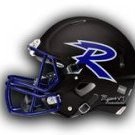-
Posts
1,692 -
Joined
-
Last visited
-
Days Won
51
Reputation Activity
-
 RichlandsAlum got a reaction from Deleted Account in Classification appeals tomorrow.
RichlandsAlum got a reaction from Deleted Account in Classification appeals tomorrow.
J.J. Kelly's heritage is certainly impressive and worth noting as a contributor to the present competitive level of the Mountain District. However, I'm not sure that it's appropriate for Wise Central to co-opt that identity at this point.
For the sake of precedent, Northfork won 8 straight West Virginia state basketball championships in a row. Mount View (the school into which Northfork was consolidated in 1985) has never won a state championship of any kind.
NOTE: I was a few minutes slow on the trigger. Didn't mean to duplicate the effort of hhstigers7327.
-
 RichlandsAlum got a reaction from 50kw in Classification appeals tomorrow.
RichlandsAlum got a reaction from 50kw in Classification appeals tomorrow.
In Abingdon's case, probably. With the exception of Battle, there doesn't appear to be a lot of competition or tradition within the Mountain District in terms of baseball. The Falcons should reasonably expect to challenge for the title or win it outright most years.
I would think that Virginia High will miss Abingdon as a regular opponent on the diamond. Richlands and Tazewell will still offer the Bearcats some quality competition within the SWD, but probably not to the same extent that Abingdon did.
-
 RichlandsAlum got a reaction from redtiger in Classification appeals tomorrow.
RichlandsAlum got a reaction from redtiger in Classification appeals tomorrow.
Virginia High's apparent preference for the SWD is another case that somewhat defies logic. Maybe it's historical and/or nostalgic. (The Bearcats were charter members back in 1956 and had longstanding scheduling relationships with SWD member schools for many years prior to that.) But it's hard to believe that the current motivating factor for alignment trumps economics.
The population dynamics of the region are (unfortunately) still working themselves out. Within a matter of a decade, I predict that there will be enough equity in terms of enrollment to allow geography and proximity to be the driving factors in district alignment. And then we'll see districts that are both large enough (in terms of membership) and compact enough (in terms of geography) to be economical.
-
 RichlandsAlum got a reaction from Ryan4VT in Classification appeals tomorrow.
RichlandsAlum got a reaction from Ryan4VT in Classification appeals tomorrow.
So if I'm following this correctly, here's one possible train of thought. Abingdon's football team will qualify for the Division 3 playoffs most years and will be better prepared for that level of play by facing the enhanced level of competition offered by the Mountain District. And the Falcons stand a good chance of being extremely competitive in nearly every other sport -- if not being outright dominant in some. I can get my head around that, but it's hard to imagine that it is worth a 50% increase in travel time and costs.
But then again, it's their decision and it probably doesn't have a huge impact on Richlands either way. Shine on, you crazy Falcons.
-
 RichlandsAlum got a reaction from Deleted Account in Classification appeals tomorrow.
RichlandsAlum got a reaction from Deleted Account in Classification appeals tomorrow.
I've never been an admirer of Abingdon but I have always appreciated the fact that they are a challenging opponent in most sports. And given the resurgence of their football program, I'll definitely miss them as a district mate.
On its face, Abingdon's request to switch districts is downright perplexing. By my calculations, they're effectively adding an additional two and a half hours of overall travel time for district games. And there doesn't seem to be an appreciable difference in the level of competition between the Mountain District and the SWD (at least from a Falcon perspective). So what gives?
-
 RichlandsAlum reacted to cityofRaven in VHSL Executive Director announces his retirement
RichlandsAlum reacted to cityofRaven in VHSL Executive Director announces his retirement
Maybe now we can get that entire cleat thing expunged... Who's with me?
-
 RichlandsAlum got a reaction from redtiger in McAuliffe veto's "Tim Tebow" bill
RichlandsAlum got a reaction from redtiger in McAuliffe veto's "Tim Tebow" bill
Bending this issue a bit, what if home schooled students wanted to eat lunch in the public school cafeteria? Would the framework and associated variables of that discussion be substantially different?
(And I'm not offering answers or insight to those questions myself. I'm just curious about how far the "compartmentalization" of tax-funded services can go, both in a legal and practical sense.)
-
 RichlandsAlum got a reaction from Deleted Account in McAuliffe veto's "Tim Tebow" bill
RichlandsAlum got a reaction from Deleted Account in McAuliffe veto's "Tim Tebow" bill
VHSL enrollments are based on actual attendance ("Average Daily Membership" is the precise terminology), which means kids are only counted if they are actually enrolled and present at a particular school.
The extent to which school systems in Virginia have to account for home schooled kids seems pretty nebulous. While I think parents are required to file a notice of intent, the degree to which individual school systems manage that data does not appear to be standardized. For example, right now in Bedford County approximately 20% of the school aged population is not accounted for in the enrollment of the public schools. But when pressed about this fact, the County's central office personnel don't seem to be able to account for the location of these couple of thousand kids nor do they seem terribly concerned about it. From a taxpayer perspective, I personally find that to be aggravating to say the least.
-
 RichlandsAlum got a reaction from Account Deleted in McAuliffe veto's "Tim Tebow" bill
RichlandsAlum got a reaction from Account Deleted in McAuliffe veto's "Tim Tebow" bill
VHSL enrollments are based on actual attendance ("Average Daily Membership" is the precise terminology), which means kids are only counted if they are actually enrolled and present at a particular school.
The extent to which school systems in Virginia have to account for home schooled kids seems pretty nebulous. While I think parents are required to file a notice of intent, the degree to which individual school systems manage that data does not appear to be standardized. For example, right now in Bedford County approximately 20% of the school aged population is not accounted for in the enrollment of the public schools. But when pressed about this fact, the County's central office personnel don't seem to be able to account for the location of these couple of thousand kids nor do they seem terribly concerned about it. From a taxpayer perspective, I personally find that to be aggravating to say the least.
-
 RichlandsAlum got a reaction from Bearcat Bob in McAuliffe veto's "Tim Tebow" bill
RichlandsAlum got a reaction from Bearcat Bob in McAuliffe veto's "Tim Tebow" bill
VHSL enrollments are based on actual attendance ("Average Daily Membership" is the precise terminology), which means kids are only counted if they are actually enrolled and present at a particular school.
The extent to which school systems in Virginia have to account for home schooled kids seems pretty nebulous. While I think parents are required to file a notice of intent, the degree to which individual school systems manage that data does not appear to be standardized. For example, right now in Bedford County approximately 20% of the school aged population is not accounted for in the enrollment of the public schools. But when pressed about this fact, the County's central office personnel don't seem to be able to account for the location of these couple of thousand kids nor do they seem terribly concerned about it. From a taxpayer perspective, I personally find that to be aggravating to say the least.
-
 RichlandsAlum got a reaction from Bearcat Bob in Why is SWVA More Successful Than NETN?
RichlandsAlum got a reaction from Bearcat Bob in Why is SWVA More Successful Than NETN?
Pretty much the point I was trying to make. But Bearcat Bob did a much better job of it than I.
-
 RichlandsAlum reacted to Bearcat Bob in Why is SWVA More Successful Than NETN?
RichlandsAlum reacted to Bearcat Bob in Why is SWVA More Successful Than NETN?
After giving this some thought, the answer to the original question is fairly obvious, IMHO. SWVA teams are mostly 1A or 2A. Because of the population centers of Virginia, SWVA schools do not have to regularly play schools from the talent rich Tidewater/NOVA areas. Most, not all schools, in those areas are 5A or 6A. The few smaller schools that do exist in those areas, notably George Mason, usually lose what real talent they have to the privates and larger schools surrounding them.
-
 RichlandsAlum got a reaction from BlueRazor in How's it going with local recruiting?
RichlandsAlum got a reaction from BlueRazor in How's it going with local recruiting?
I'm willing to confess that this was one of the first thoughts that went through my head when I read the original post -- but I've always had an odd sense of humor.
-
 RichlandsAlum got a reaction from redtiger in Why is SWVA More Successful Than NETN?
RichlandsAlum got a reaction from redtiger in Why is SWVA More Successful Than NETN?
Forgive me for thinking (or typing) out loud, but here's my theory.....
I think there are two factors, and one has a tremendous impact upon the other. The first is what I would refer to as relative demographics -- more specifically, the way that SW Virginia and NE Tennessee relate to their respective states. Given the geographical distribution of population in Virginia, there is a greater concentration of smaller schools in Southwest Virginia compared to the rest of the Commonwealth. So from a statistical standpoint, with all other factors being equal there is always a greater probability that a state champion will emerge from Southwest Virginia within the smallest classification(s).
The second factor is the nature of the classification system itself. The middle classifications in Virginia (AA and Divisions 3 and 4) have been and remain remarkably equitable in terms of standard deviation. (Put simply, there is never a huge gap between the smallest and largest members of these groups -- or at least not to the extent that there may be in the lowest and highest classifications.) Beyond SW Virginia's statistical dominance of the lower classifications in terms of sheer numbers, the largest schools in our particular region have still had the benefit of participating in a very equitable statewide system.
On the Tennessee side, the Tri Cities area serves as an isolated pocket of high population within the overall state. As a result, my understanding is that a lot of the more powerful NE Tennessee schools in our region are competing within the highest classification of the TSSAA where there can be wide disparities in enrollment. The talent disparities compared to emerging metropolitan areas like Memphis and Nashville is a symptom of this demographic factor, IMO. And there is also the matter of private schools competing within the same system as public schools in Tennessee, which probably generates some impact upon relative levels of competition there.
Long story short.... SW Virginia schools are typically competing against peers of the same relative size and nature for state championships, while NE Tennessee schools are swimming in the shallower end of their respective classification pool.
-
 RichlandsAlum got a reaction from Bearcat Bob in Why is SWVA More Successful Than NETN?
RichlandsAlum got a reaction from Bearcat Bob in Why is SWVA More Successful Than NETN?
Forgive me for thinking (or typing) out loud, but here's my theory.....
I think there are two factors, and one has a tremendous impact upon the other. The first is what I would refer to as relative demographics -- more specifically, the way that SW Virginia and NE Tennessee relate to their respective states. Given the geographical distribution of population in Virginia, there is a greater concentration of smaller schools in Southwest Virginia compared to the rest of the Commonwealth. So from a statistical standpoint, with all other factors being equal there is always a greater probability that a state champion will emerge from Southwest Virginia within the smallest classification(s).
The second factor is the nature of the classification system itself. The middle classifications in Virginia (AA and Divisions 3 and 4) have been and remain remarkably equitable in terms of standard deviation. (Put simply, there is never a huge gap between the smallest and largest members of these groups -- or at least not to the extent that there may be in the lowest and highest classifications.) Beyond SW Virginia's statistical dominance of the lower classifications in terms of sheer numbers, the largest schools in our particular region have still had the benefit of participating in a very equitable statewide system.
On the Tennessee side, the Tri Cities area serves as an isolated pocket of high population within the overall state. As a result, my understanding is that a lot of the more powerful NE Tennessee schools in our region are competing within the highest classification of the TSSAA where there can be wide disparities in enrollment. The talent disparities compared to emerging metropolitan areas like Memphis and Nashville is a symptom of this demographic factor, IMO. And there is also the matter of private schools competing within the same system as public schools in Tennessee, which probably generates some impact upon relative levels of competition there.
Long story short.... SW Virginia schools are typically competing against peers of the same relative size and nature for state championships, while NE Tennessee schools are swimming in the shallower end of their respective classification pool.
-
 RichlandsAlum got a reaction from Account Deleted in Why is SWVA More Successful Than NETN?
RichlandsAlum got a reaction from Account Deleted in Why is SWVA More Successful Than NETN?
Ultimately, I think that the talent disparity (noted by sixcat) is probably the biggest factor that affects the success of NE Tennessee teams. Based on the excellent info in the link that sixcat posted, it appears that the NE Tennessee teams are comparable to their class mates in terms of enrollment but that they are geographically isolated (D-B and Science Hill in 6A in particular). It's also worth noting that the largest Tennessee schools are much smaller than the largest Virginia schools, which means that the Virginia classification system does shield SW Virginia schools to a certain extent from the same talent disparity created by Northern Virginia and Tidewater.
-
 RichlandsAlum got a reaction from Account Deleted in Why is SWVA More Successful Than NETN?
RichlandsAlum got a reaction from Account Deleted in Why is SWVA More Successful Than NETN?
To further illustrate the point, consider the experience of the Southwest District from 1956 to 1970.
The SWD was founded primarily because certain schools (such as Marion, Richlands, and Virginia High) were deemed by the VHSL to be too large to continue competing in Group II. Other schools (such as Saltville and Graham) presumably came along and joined the SWD because Group I was the only level of play that offered access to a recognized state championship at the time. From a comparative standpoint, the SWD schools were almost always the smallest members within Group I and were at an obvious competitive disadvantage as a result. Although I stand to be corrected, no SWD team ever won a playoff game in any sport within the Group I structure for the entire time that the district was part of that classification. Graham was recognized as the 1962 state champion in football, but that was the result of a rating system and occurred after the title had been stripped from Andrew Lewis.
Whereas Virginia's reclassification in 1970 offered schools in our region the opportunity to play for a state championship (and for the very first time in most cases) in an equitable system, most NE Tennessee schools are still trapped in a system that resembles the VHSL from 1956 to 1970.
-
 RichlandsAlum got a reaction from Account Deleted in Why is SWVA More Successful Than NETN?
RichlandsAlum got a reaction from Account Deleted in Why is SWVA More Successful Than NETN?
Forgive me for thinking (or typing) out loud, but here's my theory.....
I think there are two factors, and one has a tremendous impact upon the other. The first is what I would refer to as relative demographics -- more specifically, the way that SW Virginia and NE Tennessee relate to their respective states. Given the geographical distribution of population in Virginia, there is a greater concentration of smaller schools in Southwest Virginia compared to the rest of the Commonwealth. So from a statistical standpoint, with all other factors being equal there is always a greater probability that a state champion will emerge from Southwest Virginia within the smallest classification(s).
The second factor is the nature of the classification system itself. The middle classifications in Virginia (AA and Divisions 3 and 4) have been and remain remarkably equitable in terms of standard deviation. (Put simply, there is never a huge gap between the smallest and largest members of these groups -- or at least not to the extent that there may be in the lowest and highest classifications.) Beyond SW Virginia's statistical dominance of the lower classifications in terms of sheer numbers, the largest schools in our particular region have still had the benefit of participating in a very equitable statewide system.
On the Tennessee side, the Tri Cities area serves as an isolated pocket of high population within the overall state. As a result, my understanding is that a lot of the more powerful NE Tennessee schools in our region are competing within the highest classification of the TSSAA where there can be wide disparities in enrollment. The talent disparities compared to emerging metropolitan areas like Memphis and Nashville is a symptom of this demographic factor, IMO. And there is also the matter of private schools competing within the same system as public schools in Tennessee, which probably generates some impact upon relative levels of competition there.
Long story short.... SW Virginia schools are typically competing against peers of the same relative size and nature for state championships, while NE Tennessee schools are swimming in the shallower end of their respective classification pool.
-
 RichlandsAlum reacted to Account Deleted in Why is SWVA More Successful Than NETN?
RichlandsAlum reacted to Account Deleted in Why is SWVA More Successful Than NETN?
It seems at a glance that the classifications are well established and evenly balanced in terms of enrollment figures. A rough estimation would fall something similar to this.....
0-350 = 1A
350-550 = 2A
550-750 = 3A
750-1000 = 4A
1000-1400 = 5A
1400+ = 6A
There are a few outliers in the first few classifications but each school within the classification agreed to allow the private schools to play down based on very understandable reasons. Each of those schools cater to a large segment of handicapped kids. The only NETN school that doesn't fall well inside their respective classification is Sullivan Central.
I personally feel like NETN can't match the level of talent Memphis and Nashville have. Not too many areas of the country can. Take a look through the ESPN and Rivals top 300 and see how many are from those areas.
-
 RichlandsAlum reacted to Account Deleted in Why is SWVA More Successful Than NETN?
RichlandsAlum reacted to Account Deleted in Why is SWVA More Successful Than NETN?
http://www.pmhsports.com/story/tssaa-classifications-2013-2017-seasons
Tennessee high school enrollment figures.
-
 RichlandsAlum got a reaction from cityofRaven in Why is SWVA More Successful Than NETN?
RichlandsAlum got a reaction from cityofRaven in Why is SWVA More Successful Than NETN?
To further illustrate the point, consider the experience of the Southwest District from 1956 to 1970.
The SWD was founded primarily because certain schools (such as Marion, Richlands, and Virginia High) were deemed by the VHSL to be too large to continue competing in Group II. Other schools (such as Saltville and Graham) presumably came along and joined the SWD because Group I was the only level of play that offered access to a recognized state championship at the time. From a comparative standpoint, the SWD schools were almost always the smallest members within Group I and were at an obvious competitive disadvantage as a result. Although I stand to be corrected, no SWD team ever won a playoff game in any sport within the Group I structure for the entire time that the district was part of that classification. Graham was recognized as the 1962 state champion in football, but that was the result of a rating system and occurred after the title had been stripped from Andrew Lewis.
Whereas Virginia's reclassification in 1970 offered schools in our region the opportunity to play for a state championship (and for the very first time in most cases) in an equitable system, most NE Tennessee schools are still trapped in a system that resembles the VHSL from 1956 to 1970.
-
 RichlandsAlum got a reaction from Deleted Account in Why is SWVA More Successful Than NETN?
RichlandsAlum got a reaction from Deleted Account in Why is SWVA More Successful Than NETN?
Forgive me for thinking (or typing) out loud, but here's my theory.....
I think there are two factors, and one has a tremendous impact upon the other. The first is what I would refer to as relative demographics -- more specifically, the way that SW Virginia and NE Tennessee relate to their respective states. Given the geographical distribution of population in Virginia, there is a greater concentration of smaller schools in Southwest Virginia compared to the rest of the Commonwealth. So from a statistical standpoint, with all other factors being equal there is always a greater probability that a state champion will emerge from Southwest Virginia within the smallest classification(s).
The second factor is the nature of the classification system itself. The middle classifications in Virginia (AA and Divisions 3 and 4) have been and remain remarkably equitable in terms of standard deviation. (Put simply, there is never a huge gap between the smallest and largest members of these groups -- or at least not to the extent that there may be in the lowest and highest classifications.) Beyond SW Virginia's statistical dominance of the lower classifications in terms of sheer numbers, the largest schools in our particular region have still had the benefit of participating in a very equitable statewide system.
On the Tennessee side, the Tri Cities area serves as an isolated pocket of high population within the overall state. As a result, my understanding is that a lot of the more powerful NE Tennessee schools in our region are competing within the highest classification of the TSSAA where there can be wide disparities in enrollment. The talent disparities compared to emerging metropolitan areas like Memphis and Nashville is a symptom of this demographic factor, IMO. And there is also the matter of private schools competing within the same system as public schools in Tennessee, which probably generates some impact upon relative levels of competition there.
Long story short.... SW Virginia schools are typically competing against peers of the same relative size and nature for state championships, while NE Tennessee schools are swimming in the shallower end of their respective classification pool.
-
 RichlandsAlum got a reaction from Deleted Account in Why is SWVA More Successful Than NETN?
RichlandsAlum got a reaction from Deleted Account in Why is SWVA More Successful Than NETN?
To further illustrate the point, consider the experience of the Southwest District from 1956 to 1970.
The SWD was founded primarily because certain schools (such as Marion, Richlands, and Virginia High) were deemed by the VHSL to be too large to continue competing in Group II. Other schools (such as Saltville and Graham) presumably came along and joined the SWD because Group I was the only level of play that offered access to a recognized state championship at the time. From a comparative standpoint, the SWD schools were almost always the smallest members within Group I and were at an obvious competitive disadvantage as a result. Although I stand to be corrected, no SWD team ever won a playoff game in any sport within the Group I structure for the entire time that the district was part of that classification. Graham was recognized as the 1962 state champion in football, but that was the result of a rating system and occurred after the title had been stripped from Andrew Lewis.
Whereas Virginia's reclassification in 1970 offered schools in our region the opportunity to play for a state championship (and for the very first time in most cases) in an equitable system, most NE Tennessee schools are still trapped in a system that resembles the VHSL from 1956 to 1970.
-
 RichlandsAlum got a reaction from Bluefield researcher in Yearly Football Records
RichlandsAlum got a reaction from Bluefield researcher in Yearly Football Records
Liberty (Bedford) yearly football record
1964 1-8-1 Bobby Saylor
1965 6-4-0 Bobby Saylor
1966 6-3-1 Charles Black
1967 4-4-2 Charles Black
1968 4-5-1 Bob Worrell
1969 4-6-0 Bob Worrell
1970 2-7-1 Bob Worrell
1971 2-7-1 Jim Sypult
1972 6-4-0 Jim Sypult
1973 7-3-0 Cecil Ratcliff
1974 3-6-1 Cecil Ratcliff
1975 4-6-0 Cecil Ratcliff
1976 5-5-0 Jim Grobe
1977 2-8-0 Jim Grobe
1978 2-8-0 John Walker
1979 5-5-0 John Walker
1980 6-4-0 John Walker
1981 6-3-1 John Walker
1982 5-5-0 John Walker
1983 6-4-0 John Walker
1984 5-5-0 John Walker
1985 5-5-0 John Walker
1986 4-6-0 Joe Fraley
1987 3-7-0 Joe Fraley
1988 2-8-0 Ricky Falls
1989 4-6-0 Ricky Falls
1990 2-8-0 Ricky Falls
1991 3-7-0 Ricky Falls
1992 5-5-0 Mike Scharnus
1993 7-3-0 Mike Scharnus
1994 5-5-0 Mike Scharnus
1995 9-2-0 Mike Scharnus
1996 4-6-0 Mike Scharnus
1997 4-6-0 Scott Abell
1998 0-10-0 Scott Abell
1999 2-8-0 Scott Abell
2000 9-2-0 Scott Abell
2001 10-3-0 Scott Abell
2002 10-4-0 Chris Watts
2003 10-2-0 Chris Watts
2004 10-1-0 Chris Watts
2005 11-2-0 Chris Watts
2006 5-5-0 Chris Watts
2007 6-6-0 Chris Watts
2008 7-5-0 Chris Watts
2009 10-2-0 Chris Watts
2010 10-2-0 Chris Watts
2011 1-9-0 Chris Watts
2012 7-5-0 Chris Watts
2013 7-4-0 Chris Watts
2014 8-3-0 Chris Watts
2015 4-7-0 Chris Watts
275-264-9 .502
I know that Bluefield researcher may disagree, but IMO it's not really appropriate to consider Bedford High School and Liberty to be the same entity. Liberty was created in 1964 by combining Bedford, Big Island, Montvale, and New London. And while Bedford is the only one of those schools that fielded a football team on a consistent basis, the other three did have distinct and separate athletic programs.
-
 RichlandsAlum got a reaction from Bluefield researcher in Yearly Football Records
RichlandsAlum got a reaction from Bluefield researcher in Yearly Football Records
I can tell you that Randolph-Macon Academy pulled out of Bedford in 1934 and consolidated the military school operation in Front Royal that year. But the local impact of that institution is also pretty nebulous. And the precise nature of that school's athletic program would be pretty hard to explain in today's terminology -- I think it might be akin to the "post grad" teams sponsored by current schools such as Fishburne and Hargrave. The grey area here is underscored by an interesting bit of trivia.... Virginia Tech's first neutral site game took place in 1893 in Bedford against Randolph-Macon Academy.
From an anecdotal perspective, I can also advise that several of the remaining alumni of the four constituent schools (and there are still quite a few of them) definitely consider Liberty to be a separate and distinct creature.
.png.01bb665814ffc257795fe158cb2045c7.png.8a531ac878a82772b21014d7a6167582.png)








